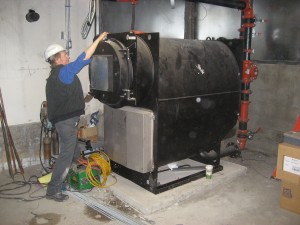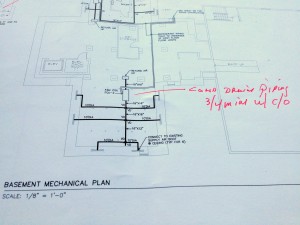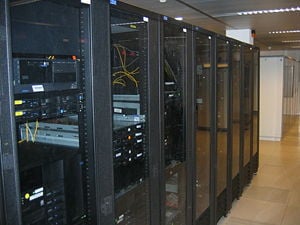As an HVAC design engineer and an energy analyst, I was intrigued by the building commissioning process when I first came to work for Cx Associates. The building commissioning process is where the theoretical design world meets the reality of “how does my building actually work”? Designers typically don’t get this feedback; they must move on to their next job as soon as the design is complete. In addition, design engineers almost never get on the job site during construction to see design issues first hand, nor do they typically receive feedback on how the building operates after occupancy. This lack of feedback is recognized as a lost opportunity for continuous improvement, but it’s a reality.
Commissioning is in the Field
I now work as part of a team with very experienced commissioning agents who spend almost half their time in the field answering exactly this question: which designs and system approaches work, and which ones fail to deliver the expected performance? These commissioning engineers are physically following duct work and piping as well as calculating building loads and identifying energy efficiency opportunities. These engineers know what problems arise and what options are available, for example, when balancing valves are inoperable because they are against the 36”x16” duct that needed to be re-sized to fit into a 24” plenum with a sprinkler line in the middle of it.
Commissioning Design Reviews Provide Feedback
This hands-on experience is extremely valuable to a designer. Working as part of a team, the commissioning agent can provide real-world feedback during the design phase on such things as performance or maintenance issues with the placement and selection of equipment. In addition, commissioning engineers with design experience are equipped to identify design improvements that can save the building owner money by reducing operating energy costs over the life of the building, and lowering first costs by proper sizing of equipment. For example, a commissioning design review may identify opportunities for pressure or temperature reset controls to reduce the flow of a constant flow domestic hot water or a heat pump loop, saving thousands of dollars in annual energy costs and adding minimal up-front investment. Oversized HVAC equipment cycles frequently, creating noise issues and shortening equipment life, as well as increasing the upfront and operating cost to the owner. A commissioning design review can serve as a check to make sure the engineer worked with the most up to date architectural plans for the building shell when calculating the energy load to ensure properly sized equipment.
Building on Each Others' Skills within a Design Team
We all want to keep improving our competency. In addition to standard avenues for professional development such as seminars, classes and conferences, I have found the commissioning agent’s hands-on experience to be invaluable for furthering professional development. Commissioning agents have the opportunity to review and field test numerous designs from various engineers and can bring ideas learned from other projects to the design review.
The entire design team – architects, design engineers and commissioning agents – can learn from each other, as we each approach the project from unique perspectives and bring different experiences to the process. A collaborative approach and a team spirit will improve the current design as well as build on everyone’s skills for future projects.
Related articles
- How to Present Your Commissioning Design Review Comments Convincingly (buildingenergy.cx-associates.com)
- Building Retrocommissioning: What Is It and Why Should You Care? (buildingenergy.cx-associates.com)
- The Leap: Building Enclosure Commissioning...a LEED Prerequisite (pieforensic.com)





